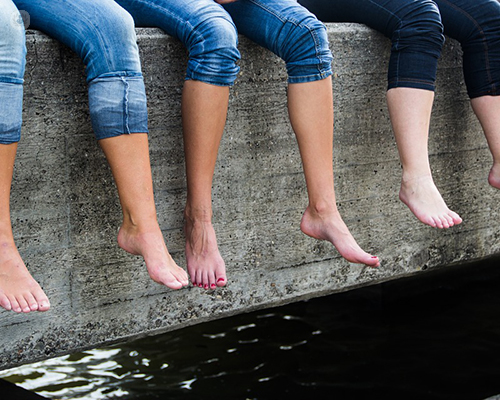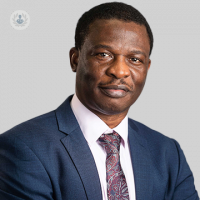Varicose veins: what to do when they become a problem
Written in association with:Varicose veins are enlarged veins which become swollen when the veins and the valves in the veins aren’t working properly. They often occur in the legs, or feet, and are relatively common – around one in four adults has them. In most people, they are just unsightly, but in some people, they may cause discomfort, pain, irritation, leg swelling and damaged skin. In his latest online article, renowned consultant vascular and endovascular surgeon Mr Akin Oluwole answers the most commonly asked questions of this condition.

What are varicose veins?
Veins return blood from around the body to the heart. Our veins have small valves inside them which open and close, letting blood through and stopping it from flowing backwards as it moves around the body. If the valves are leaking in some way, or are weak, blood can then flow in the reverse direction causing them to become engorged and swell – these are varicose veins. They are dilated and tortuous veins.
What are the symptoms of varicose veins?
Veins may cause aching sensation in your legs, or muscle cramp (especially at night). Sometimes skin can feel dry, and itchy, causing irritation, and your legs may feel heavy, swollen, and uncomfortable. In serious cases, it can lead to skin damage like eczema, purple/bluish/brown skin staining, cellulitis, and leg ulcers, some people may experience bleeding or blood clots.
Can you prevent varicose veins?
Varicose veins can’t really be prevented, but there are certain measures you can take to keep your blood flow healthy. Make sure not to sit or stand for elongated periods, and move around regularly, taking breaks where you can put your feet up – this may help with any discomfort. Get regular exercise and keep as active as possible. If you have varicose veins, wearing compression stockings may help ease the discomfort.
What is the treatment for varicose veins?
There are various treatment options offered for varicose veins these days. They are mainly minimally invasive, keyhole and very effective. Many patients return to work within 2 to 3 days. Your vascular surgeon will decide with you the best treatment for your veins. Options are:
- Ultrasound-guided Foam Sclerotherapy; this involves injecting a medication called Fibrovein as foam into the veins in order to block the vein. It is performed under local anaesthetic and easily tolerated.
- Laser Ablation surgery: This is where we use laser beams to destroy the lining of the veins and block the vein.
- Radiofrequency ablation: using radio frequency waves and heat to block the vein.
- High tie, stripping and avulsions; This procedure is now only used if your veins are unsuitable for the other keyhole methods. Usually done with general anaesthetic.
If you have any doubts about varicose veins and treatment, make an appointment to see a vascular surgeon and discuss your options.
We run a free monthly varicose veins clinic at Spire Nottingham.


